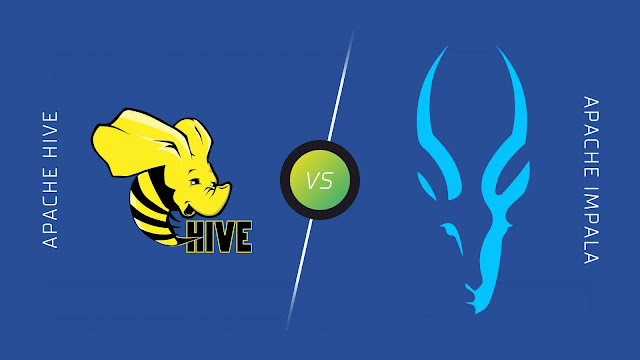A Head-to-head Comparison: Hive vs Impala
Overview
Today, we will be comparing the two most used big data technologies known as Apache Hive and Apache Impala, what are its use cases, and how they can benefit us.
Apache Hive
Apache Hive is an open-source warehouse system for querying and analyzing large data sets in Hadoop files using SQL. For more in detail, please follow the link.
Check How to setup Apache Hive using MySQL metastore
Apache Impala
Apache Impala is the open-source, massively parallel processing SQL query engine for Apache Hadoop.
Hive vs Impala
As Hive is built on MapReduce, it is slower than Impala for less sophisticated queries due to the numerous I/O operations that must be performed for single query execution. As a result, Hive is mostly utilized for batch processing and ETLs (extract, transform, load). Hive is more capable of handling long-running, complicated queries on considerably larger datasets. Because Impala is not based on MapReduce techniques, latency is decreased, allowing it to execute faster than Hive. Impala offers in-memory data processing, which means it can access data stored on Hadoop data nodes without moving it. Impala offers an extremely efficient run-time execution mechanism, as well as inter-process communication, parallel processing, and metadata caching.
✳️ MapReduce/Tez-based jobs frequently have startup overhead, which Impala avoids. Every query in Hive suffers from a "cold start," whereas Impala daemon processes are initiated at boot time and are always ready to process a query.
✳️ All intermediate results are materialized by MapReduce, improving scalability and fault tolerance while slowing down data processing. Impala distributes intermediate results among executors while trading off scalability.
✳️ Hive generates query expressions at compile time, whereas Impala generates code for "big loops" at runtime.
✳️ Apache Hive may not be suitable for interactive computing, but Impala is designed for it.
✳️ Hive works on batch processing whereas Impala is more like MPP (Massively Parallel Processing) based database.
✳️ Impala does not offer fault tolerance, although Apache Hive does. When a hive query is run, if the DataNode fails while the query is being executed, the query's result is provided since Hive is fault tolerant. However, Impala is not one of them. If a query execution in Impala fails, it must be restarted.
Impala performs well with less complex queries but struggles as query complexity increases.
Drawbacks of Impala
- Serialization and deserialization are not supported by Impala.
- Only text files can be read by Impala. It does not support reading user-defined binary files.
- Impala should update the table whenever a new record/file is added to the HDFS data directory.
Use-cases:
Apache Impala executes queries at low latency and supports parallelism, therefore it's a perfect choice to work on a data mart. A data mart is a subset of a data warehouse that is focused on a specific functional department of an organization. Impala is a good choice for working with ad-hoc queries and allows exploring the data in an iterative manner.
Apache Hive has the primary operation to run complex and longer-running queries therefore it is a good choice for the implementation of data warehouses. Hence, it's not suitable for ad-hoc queries or for interactive computing.
More Resources:
Conclusion
To sum up, we have successfully learned the usage of Impala and Hive in depth. Although, we can say both complements each other and are used in different use cases according to their characteristics.
If any query occurs feel free to ask in the comment section.
See you next time.
@TechAE






No comments:
Post a Comment
Thank you for submitting your comment! We appreciate your feedback and will review it as soon as possible. Please note that all comments are moderated and may take some time to appear on the site. We ask that you please keep your comments respectful and refrain from using offensive language or making personal attacks. Thank you for contributing to the conversation!